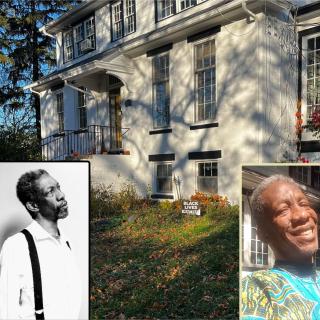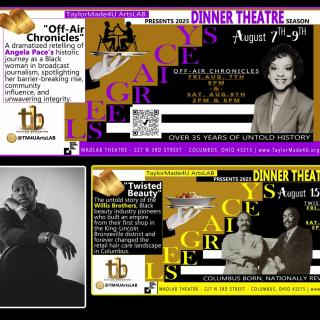The Black Keys and Raconteurs' new albums were my subject this month – until my sweet little lunchbox-sized boombox someone gave me died last week with nary a bang or a whimper. Honestly, the sound wasn't bad when the little bugger worked. Oh, well, next month.
My decade-old $39.99 Target DVD-player however functions though sometimes I need a butter knife to pry open the disc changer. Yay, technology!
I didn't realize until just the other day I've been going through a cinematic revolution-themed phase. Let us recount the ways:
- Z – While I'm no Johnny Diloretto nor John DeSando (John Duh-Petric? I'll take it), I do know 1969 was the most glorious year of world-wide revolutionary student noise in history, the year this political thriller came out. I was aware of it back then at the age of 14, when I loved Abbie Hoffman and the Chicago Eight. Political film-maker Costa-Gavras depicts the assassination of Greece's opposition leader and the investigator assigned to find someone other than the right-wing culprits (Army generals, natch) does his job instead. Mostly if not entirely a true story, Z shows what happens when the truth comes out: nothing. The generals ultimately won, we supported their anti-communist totalitarianism and the people hated our guts anyway. I mos def got caught up in this revolutionary drama.
- The Battle of Tangiers – France, a true imperialistic power well after WWII, fought Algeria's 'rebels' from 1954-1962, deservedly losing after killing thousands. This 1966 documentary-styled drama by Gillo Pontecorvo can be a bit hard to follow but is worth it. If ever there was a true people's uprising minus 20th century ideology it was the long and hard-fought Algerian war for independence. I'm just not sure why France needed the place – to guard their southern flank from across the Mediterranean? Oil? The fun of wearing pith helmets? If I were a French soldat I would've sold my submachine gun to the first rebel I saw and headed off to the hookah bordello. The actors do not seem like they’re acting in Tangiers. Perhaps just a bitterly heart-felt re-enactment? Recommended.
- Che – By Steve Soderbergh starring the inimitable Benecio Del Toro as perhaps the one true Marxist in the Cuban revolution – Fidel and Raul Castro being garden-variety Latin socialist gangster strong men – was for me an eminently watchable four-and-a-half-hour, two-part saga/adventure of one very notorious twentieth-century revolutionary. Divided into The Argentine (Che's birth country) and The Guerrilla, Soderbergh and Del Toro depict the triumphant Cuban revolution rise and then Che's perhaps-deliberate suicide mission fall to spread the word in Bolivia. Was he too Marxist for the Castros? Did he kill too many fellow Cubans by firing squad? Was he incompetent in running the various ministries he was put in charge of? Had Fidel enough of him? Che doesn't address these possibilities but it does capture 1959 perfectly as well as his last year in the mountain jungles finding out Bolivian farmers needed him like a hole in the head. And that's what he got. Great movie – in my counter-revolutionary opinion.
- The Baader-Meinhof Complex – Released 2010, this nearly non-stop 149 minutes of anti-imperialist revolutionary violence of bombings, assassinations, kidnappings, bank robberies and shoot-outs with the pigs in West Germany from 1970 to 1977, B-MC shows a time almost no young social justice warriors here know a thing about. Let's keep it that way – a lotta people were separated from their limbs and lives thanks to the gang known as the Red Army Faction as Andreas Baader and his female counterpart (whom he wasn't above calling a "cunt" frequently) Ulrike Meinhof tore half of Deutschland a new azzenzeehole. Cool to see a lot of actors from the Hitler fuhrerbunker saga, Downfall, playing commies and normal cops instead of SS. In Germany, that's progress.
- Angels In America – I confess this 2004 HBO version of playwright Tony Kushner's 1991 landmark AIDS portrayal directed by Mike Nichols hasn't struck the desire chord in me. I've just never thought much of Kushner's unabashed political partisanship which admittedly isn't the problem here, just his portrayal of saintliness of gay victimhood when it comes to the horrific disease. Plus, I just can't relate to the metaphorical surrealism in the first half. Guess I'm just a 'dems-dese-and-dose' kinda guy. I plan to give it another chance before I return it to the library. Still, Kushner's play qualifies as revolutionary to me, given its subject and its time of revelation.
- Downton Abbey – Why do liberals love this show so much? The minor subplot of the chauffeur-turned-Irish-revolutionary who steals the earl's precious daughter Sybil away, I seriously doubt an entire class of servants were as approving of the 'upstairs' crowd as these 'downstairs' misfits are depicted. Mr. Carson is the equivalent of a plantation overseer, the elegant brute. When it comes to England's ruling class, World War One didn't kill enough of them.



